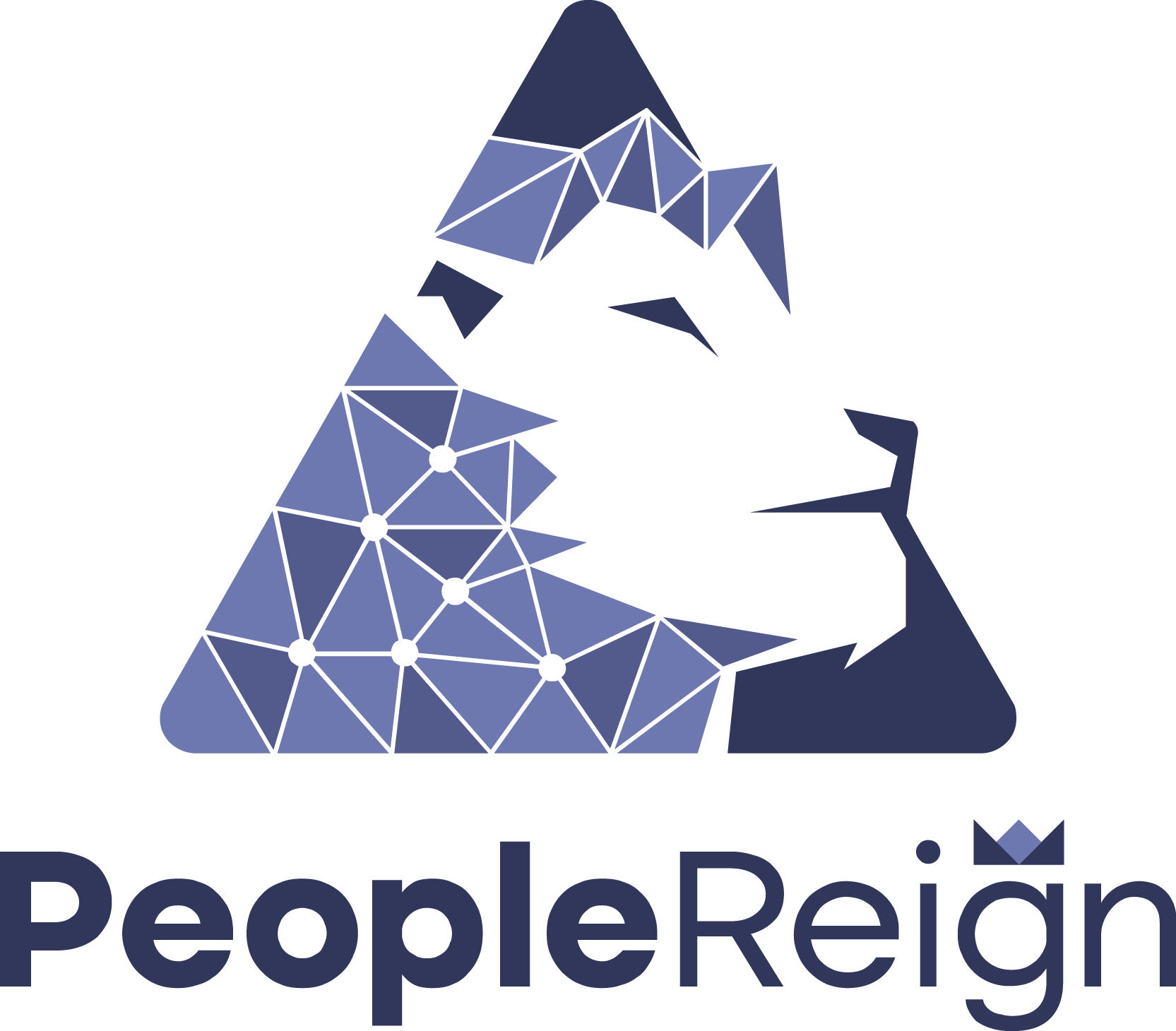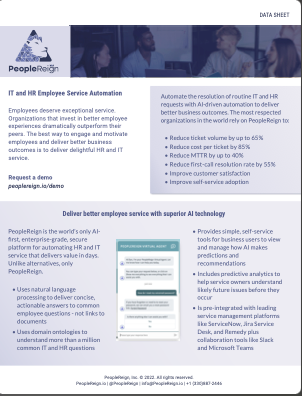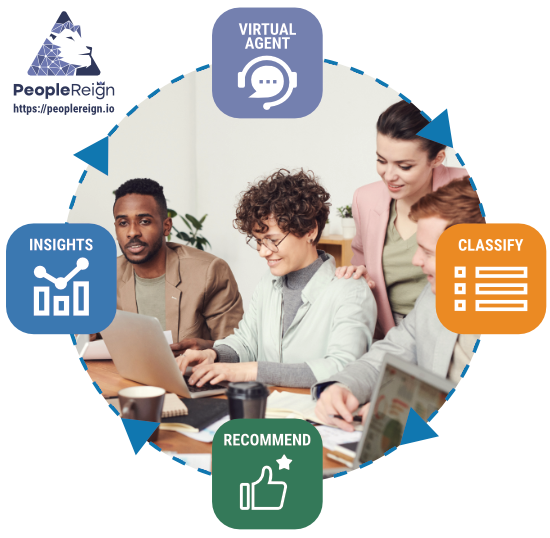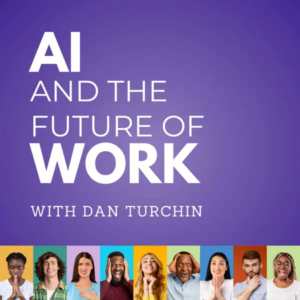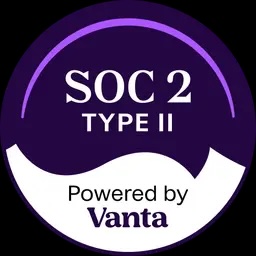This is a transcript from the AI and the Future of Work podcast episode featuring Phil McKinney, former CTO of HP and CEO of CableLabs, shares the formula for turning ordinary teams into innovation machines
Dan Turchin (00:14):
Good morning, good afternoon, or good evening, depending on where you’re listening. Welcome back to AI in the future of where thanks again for making this one of the most downloaded podcasts about the future of work. If you enjoy what we do, please like comment and share in your favorite podcast app, and we’ll keep sharing great conversations like the one we have for today. I’m your host, Dan urchin advisor insight finder, the system of intelligence for it, operations and CEO of people rein the AI platform for it. And HR employee service technology innovation comes from technologists, but also from visionaries and leaders. You know, we, we look to luminaries like Alon Musk and Sergi and Larry, the Google guys. And of course, Steve jobs to show us the future and challenge our thinking about what’s possible today, we get to meet a tech pioneer whose street cred is comparable to all of the greats.
Dan Turchin (01:11):
Phil McKinney’s an innovator, a thinker, a creator, an author, a speaker he’s the former CTO of HP who has built teams that have innovated award-winning technologies and products currently used by a half a billion people worldwide. Phil’s also the CEO of cable labs where he leads a team driving innovation in the broadband industry. Phil’s been recognized widely in the media. Notable references include vanity fair of all sources referring to him as the innovation guru Ms. In Fox business, call him the gadget guy, the San Jose mercury news calls him the chief here. I call him a living legend and a walking Silicon valley tech time capsule. I will also mention that Phil is an iron man of podcasting. He’s the host of the podcast killer innovations, which is the longest running produced podcast in history running for 17 years. Phil’s about to start his 18th season in just a few weeks. He explores topics related to innovation, creativity, human potential, and leadership. Thanks to recent guest Maun Samaha for the introduction to Phil and without for a there do Phil. It really is. My pleasure to welcome you to the podcast. Let’s get started by having you share a little bit more about your illustrious career
Phil McKinney (02:36):
Dan. Thanks for having me on the show and yeah, we do have a common connection through Mamoon when he was part of my innovation team at Hewlett Packard. So a little bit more on me. My background is I’m a software engineer by training and spent my early portion of my career in Silicon valley in the eighties. And then I, as I jokingly refer to it, as I achieved escape velocity and left the valley I got recruited one of the technology I was working on, got funded by front neck, venture capital out of Chicago. So I went back to Chicago, which is where I was Julie was from. And then I ended up in DC and London and Johannesburg and Hong Kong. And then finally made myself back to the states. And then was one of the five founders at intelligent fixed wireless provider in the late nineties.
Phil McKinney (03:35):
We grew that took, did, did the IPO. I cash out. That was my first retirement. And then Carly and the, a team at HP reached out for me to come and help. I agreed to go at HP for one year to help. And that turned into a decade at at HP and then retired out of HP at the end of 11. That was my, of retirement. My book beyond the obvious was coming out in February 12. That was the plan. And that lasted five months before I got talked into coming to cable labs. I agreed to come here for three years to help it get back up on in going in in the right direction. I been around for a long time since the late eighties, but I stepped in June of 12 and three years now’s turned into nine, almost 10 years here at cable app. So as my wife says stop using the R word cuz it’s absolutely meaningless. And but no, it’s it’s it’s great. We’re we’re based here in Colorado, love Colorado and having having a blast working on the next generation broadband that we all get to enjoy.
Dan Turchin (04:55):
So you’ve accomplished so much and yet you’ve clearly we failed at retiring. Now we got, we got connected through Mao who was very public about how much he admires you as his role model. Before we started taping you tell me about some of the amazing CEOs you’ve worked for Carly and mark, her and Leo, et cetera, on down line. And your you’re your role intelligent? Who are your role models in business and in life as well?
Phil McKinney (05:27):
Well, the, the story I always tell is about my first mentor guy by the name of Bob Davis. So I’ll age myself, but I’ll really age Bob. And that is Bob was one of the original teams on a software company called call founded by John Coine. It was one of the first IBM mainframe software companies. This is way before PCs and Bob was worked for John and coed actually got acquired by CA so computer associates, part of what originally formed computer associates was coed. And so Bob left, he went with a company that was a division of Prentice hall in Chicago. And Bob hired me my first job. So I’m a barely 21, 1 year old kid coming in. And and that, you know, I didn’t know him. He had read an article. I was an undergraduate researcher at the university of Illinois in computer graphics.
Phil McKinney (06:27):
And I was fortunate to have some of my research published. Bob had read it and reached out and recruited me. And that’s how I ended up hooking up with him. And he and I, you know, my, my book was, is dedicated to him. And I talked about him all the time is really the motivation behind the podcast, because you don’t realize how important your mentors really are to really getting you set on the right path. So in the case of Bob early on, he said, look, you could be a great software engineer, you know, knock yourself out. But he said, you know, he, he was the person who stood, you know, stood by me and said, no, I think you’ve got something more than just being a great software engineer, but to do that, you have to become a, what he refers to as a T-shaped individual eye shape, meaning you really, really deep, deep, deep, deep in one area T shape, meaning you have to have an expertise in one area, but you have to have a variety of experiences, a variety of roles across the wide range of industries.
Phil McKinney (07:34):
And that’s what really builds your skill to be able to literally take on any thing that gets thrown at you, taking on things that just you don’t even know about, but you’re like, Hey, it’s kinda like what I did over here at this job, or over here on this job. and you make it work. So Bob put me on this rotation. I spent six months in sales, six months in marketing and six months in finance. And, you know, I did every, every role that was in there while he then appointed me to be the new manager of the software product group of the company. And I was barely 21 years old as a manager. I mean, talk about, you know, coming in with your eyes while open and scared to death that you’re gonna screw up or whatever. But Bob and I ended up going to three together.
Phil McKinney (08:20):
He was actually, Bob got recruited to a company in Silicon valley and he brought me with, that’s how I ended up in the valley, you know, in the early eighties. And and later on in life, I asked him, I said, how do I pay you back? And he laughs, he goes, yeah, you can’t pay me back. You gotta pay it forward. And so the podcast got really in 2005 as just kind of a little experiment to see, you know, if anybody was listening to this new thing called podcast thing, and back then, there were no tools you had to hand code yours feeds. Cause there was no tools to build automatically build RS. I mean, it was crazy back then in the early days. And the podcast got legs, got traction. And then, you know, I’m a big believer in internships and mentoring and finding people who, who are who, you know, who’ve got real potential that you can and come alongside and it’s not reflecting back on me, just like Bob’s never taken, you know, never stand.
Phil McKinney (09:21):
You never stood up and tried to claim credit for any of my success successes within the individual, but it’s helping someone kind of avoid the landmines and let them learn from your lessons learned, you know? And then you get those Amplifi and I mean, you know, I’ve got, you know, interns that have gone on to just absolutely phenomenal careers. Curtis brown runs gaming products at Logitech and Lee chin was the founder of major league gaming. So if you like eSports and mg Lee, and he was one he was in, he was one of my early interns back intelligent and you know, a whole slew of them. And these guys have just done absolutely you know, phenomenal. And they all know each other, cuz I’ve all introduced them to each other cuz they, and that helps build up a network. Cuz look, careers are hard.
Phil McKinney (10:15):
Life is hard. Balancing life is hard. If you think you can do, if you think it’s all you and doing it on your own, you’re you’re full on yourself, right? It’s it’s about your network and not just your network for contacts, can you get a deal? But I mean, finding those people who could really come along and who are also gonna be brutally honest with you, right? Don’t don’t let your PR go to your head or you know, some article someone writes about you making you sound like, you know, you’re, you’re some amazing individual, you know, guess what, you know, we, we all are we all come from the same mold, right? We’re all flawed individuals and you need people around you that are gonna yell BS when you’re, when you’re letting, when you’re letting letting the press go to your head and thinking that you’re better than you are.
Phil McKinney (11:03):
And yeah. So, you know, for me, you know, if you ask me who, you know, and it’s still, you know, Bob’s now long retired and he drives a school bus in Phoenix, Arizona, and his retirement for special needs kids. And that’s what he does in his retirement. And and in fact he hates it cuz I’m, you know, when I mention him and he hears about it or something from common friends, he constantly asks me to kind of tone it down. And I’m like, tough dude, you get the, you know, you don’t know how much I appreciate what he, what you did, what he did for me early in my, my career. I just, I couldn’t imagine where I’d be today without it
Dan Turchin (11:43):
Incredible story. I hope he’s listening. Have to make sure we share this with him now for more than 17 years, every week you talk about innovation in the creative process. Can creativity be taught? Can it be learned? And for our listeners who are looking to say be more creative, what’s your coaching? What do they do?
Phil McKinney (12:06):
I am a big believer that you can learn it now. Just like anybody can learn to play basketball. Not all of us are Michael Jordan’s at the same time, but you have a muscle. I think if creativity is literally a muscle that you need to exercise and you need to continue to exercise you know, if you, if you’re a couch potato on a Friday, you don’t get up and say, oh, I’m gonna run the Boston marathon on Monday and you go run it or that’s, you’re not gonna have a good outcome. So you get up, you walk around the block for a couple of weeks. Then you start jogging around the block. Then you start running and then it’s two blocks and you do a little bit longer and you build up to it. The same thing applies to creativity. If you haven’t been, if you have not been exercising your creative muscle, it’s hard.
Phil McKinney (12:52):
It’s like being a couch, but 10 you’re coming up and you’re trying to go out there and look, there’s a lot of things that hold people back. You know, one area that I think does a disservice to people’s creativity is the educational system. Look, we’re all born naturally creative, right? I have five grandkids. Eight oldest is nine to, I sat around with those grandkids and watch what they do. And they are just naturally born as creatives. You know, they can take and turn a tape toilet paper, roll into some game or whatever in the process. And I did this little experiment where I went, who and I was doing some work for the us department of education as a pro bono project, trying to help innovate K12 education here in the United States. And I went into schools, talked to teachers and talked to classrooms and I do a lot of public speaking, big events, that type of thing.
Phil McKinney (13:52):
And I always ask people how many people here think of themselves as highly creative, right? And actually it’s shocking how few people in an, in a large audience think of themselves as creative. Oh, that’s somebody else’s job. They got the special DNA. I didn’t get it. Those, you know, it’s a self-doubt thing. What happens in the school system? You go into a kindergarten class and you ask kids to show you a dance or show you some artwork or seeing you a song. They invented boom. Every kid in the classroom wants to do it. Now do it every class up till 12th grade. When you get to 12th grade, the only kid in 12th grade that wants to do it is the weird kid. Nobody wants to eat lunch with and in the cafeteria. Right? And we’ve just, we’ve we build in this kind concept of conformity and we want to conform.
Phil McKinney (14:40):
We don’t wanna stand out. We wanna, we dress a certain way. We act a certain way and that just crushes any form of that creative output. And then you go to college, it’s all about the test. You know? So we, we continue to teach people to be really good test acres. We’ve kind of lost the art of creative of problem, solving creative thinking, critical thinking skills. Then they graduate. And the number one skill for the last five years on the annual survey, the top skill that CEOs hire for is creativity. So here we are. We take it outta the system. We teach conformity, get their grade, get their degree. And then instantly we want everybody to be highly creative and the hats of success, pretty slump. And so you, then people have to go find it. What what’s holding it back. Fear of failure.
Phil McKinney (15:34):
Number one, if I fail, I’m gonna, I’m going to you know, I’m not going to be successful. Tends to be the number one reason, oh, I’m not gonna do it. I’m not gonna show. I’m not gonna contribute. I’m gonna kind of set back. You know, the fear of what other people might think of you, right? The view that you’re not C, right? I don’t know how to be creative. I’m not an artist. I’m not, not a musician. There’s lots of ways to be creative. You don’t have to be an amazing artist or play guitar and get on stage. There’s a, the form of creativity ha takes on a wide range, a wide palette that you can apply it to anything. So one of the skills that we teach in the workshops, right, or the gate is, is to kind of how do you spark that, that first creative idea to kind of convince yourself that you are creative.
Phil McKinney (16:25):
And that is through the power of questions. Questions have a very unique, distinct power. If I ask you a question, you can not stop yourself from answering it. So if I ask you, what is half of 13, you’ve calculated the answer. And now you’re back listening to me. Now, if you come back and you tell me the answer is six and a half. If I’m doing a math test, you get an a, I’m doing a creativity test. Eh, I give you a C minus. Why? Because you stopped at the first obvious answer. And 99% of the people think of it as a test, like you’re back in school. I got the answer. Write the answer down, move on to the next problem. Stopping at that first obvious answer. That’s where the problem was. 99% of your competitors. 99% of the people who are looking at a problem will stop at the first answer.
Phil McKinney (17:20):
The real breakthroughs come through. When you can get beyond that first obvious answer, you can continue to dig. If I reword the question slightly differently, and I say, how many different ways could you answer the question? What is half of 13? Now? You’re thinking completely differently. If it’s Romal 13, you split it vertically. It’s 11 and two, you split it horizontally. It’s Romal eight and eight. There’s 13 cars in a deck of card. What’s the middle card. You can do the, write out the word. T H I R split it T E N. Right? In fact, there’s a professor who uses my book in her course. And this is actually one portion. That’s in the book. This half of 13 question and her the record for any one of her classes is found is 31 ways to answer the question, how many different ways could you answer?
Phil McKinney (18:13):
What is half of 13? So now apply that to your problems. Now stop at the first obvious. But if you think about how to word questions in such a way and not stop at that first answer, you are all of a sudden flooded with ideas, just they just naturally emerge. And then if you have a process to find, figure out which one’s the better idea, which ones you should spend some time on, you will never run out of ideas. This fallacy that, oh, there’s only a limited number. And when I got that really good one, I gotta smother it because it’s the only, when I’m ever gonna get in my life’s BS. It is you will never hit the bottom of the well of your ideas. You just have to find a way to bring them up and discover them and move them forward. So don’t have that fear of failure. Don’t worry about what other people are gonna say about you and use to help you Repar refine, rediscover that natural creativity that we are all born with. It’s not a gift of DNA. We are all naturally highly creative. We just need to rediscover it.
Dan Turchin (19:28):
You’re talking to a lot of entrepreneurs and CXOs that are building teams, building organizations. What are the attributes of the best performing teams and cultures? If you’re using creativity as a measurement of, of effectiveness?
Phil McKinney (19:45):
Well, the way, well, the, you know, I use what’s called the seven laws of innovation. You, I wrote this blog post the weekend after kind of everything went nuts at HP. When it, when they decided to sell Palm and they were gonna dump the PC group and all of that out of little out of frustration. Well, I didn’t realize how wide that article was gonna go fast company, put it front page in the magazine. And I mean, it went nuts, but I’d been working on it for a while. Thinking back on my, at that time, you know, a 30 year career in the innovation game, you know, what are those characteristics, right? Rule number one, law of leadership. You gotta have top leaders, right? You just have to have the law, gotta leaders have gotta get it. They gotta walk the walk, you know, and talk the talk.
Phil McKinney (20:39):
They just, they can’t fake it. You gotta have leaders who really understand it. You gotta have the law of resources. You gotta have committed resources. You can’t play the game of, of you know, using R and D as a manipulation to make your quarterly, you know, results. You know, you’ve gotta have the law of patience and a patient takes longer than you think. You know, you, you can’t, you know, a Gantt chart, isn’t gonna be a squat. If your doing, you know highly innovative, highly creative work. You know, you gotta have the law, what I call the BHA, you gotta have the bold, hairy, audacious goal. You gotta have the thing that’s gonna motivate your team. That’s gonna give your team a clear vision to get them across the goal line. When it’s all, when it’s all said and done you know, so, you know, there are these characteristics that the culture one though, that there is a, one of the seven laws is the law of culture.
Phil McKinney (21:37):
And it’s the one that most people spend the least amount of time on, but that can have the biggest impact culture is one that I’ve learned over my career. When you do it wrong, it can go really, really bad, really fast. The example I use is intelligent. We were five people who were the original starters at intelligent, and, you know, we grew like all rocket. I mean, at one point I was, I was needing, you know, to hire, you know, something in the neighborhood of like 35 people hire 35 people a day, seven days a week, not interview hire 35 people a day, seven days a week for like, almost like seven or eight months. That’s how many people we were hiring. It just ended my organiz, my part of the organization. It was insane. So there was no thought of culture.
Phil McKinney (22:39):
You basically do. You have a pulse, can you fog a mirror? Can you prove you got some technical competence, great. Start on Monday. And by the way, here’s a signing bonus. We’ll pay you a bonus. So you start on Monday, which means you kind of don’t treat your previous employer. I mean, it was crazy nuts. Well, the problem was nobody focused on the culture. See, we were just hiring people because of technical skill. So you ended up with what I call an accidental culture. You know, you get a little bit of this, you get a little bit of that. You get a bit of this, whatever happens, happens. Oh my gosh, the HR issues, we had intelligent our second to none of anything I’ve ever heard. I win every bet. People always wanna say, oh, I was at this company and X, Y, Z. He, and I’m like, that’s nothing you went, you gotta hear this story.
Phil McKinney (23:28):
Right? And then I get to HP. And it’s like, I got almost like whiplash from one extreme to the other extreme. The HP culture is so incredibly strong. I was fortunate when I first went to HP and I’d been a customer of HP when I was intelligent. I was one of HP’s largest customers in north America buying. I was buying 300, 400 million a year gear on a regular, just ship the truck, ship the truck, you know, we were growing so fast. So I was a customer and always was impressed. And then all of a sudden I’m on the inside. And I got to meet Chuck house, who was one of the directors at HP labs, long retired, but very well known in the valley. And art fun art was HP employee. Number nine, the ninth employee at HP when I met M art was 91, still lived in the same house in Palo Alto.
Phil McKinney (24:23):
So art took me under his one. I would go, he was a, he’s a Berkeley grad. So Berkeley playing football. You’re in, you’re an arts’ living room, watching football with art and art. I heard, I got to hear all the bill and Dave stories and the original early days of HP and was, and I quickly figured out that a lot of the senior leaders and the board at be never bothered Delore in the HP culture. Culture can, can be incredibly powerful if leaders know how to leverage it, because if you keep aligned on the culture and you set your vision, you set your Behe, you set your agenda that leverages that culture. There’s nothing that can stop you. Nothing that can stop you. And in the case of innovation, you’ve got to have a culture that supports collaboration, that, so that takes out that fear of failure that people don’t get.
Phil McKinney (25:19):
Don’t, don’t, aren’t even worried about the fact that they’re gonna get in trouble or get fired, or, you know, you’ve gotta knock that fear of failure. You’ve gotta put in the comfort with risk, the willing to experiment and try things. Bill hill at one time came in on a weekend. And he was when he took over a bench and was working on an idea, you know, this is like, this would’ve been in the seventies, right? So it wasn’t like it was a startup, you know, everybody knew, know who bill was. Right. But he walked in and somebody had locked up the parts cabinet. Somebody had thought about, you know, oh, someone could walk off with the parts. So bill went out and got a Crow bar and busted the lock off of it. And then left a note on the parts cabinet saying never lock this again, because his view was is if someone comes up with a crazy idea and wants to build thing on their bench, let ’em right.
Phil McKinney (26:10):
Don’t, don’t get in the way, don’t be a speed bump in the, in the process of coming up with an experiment or trying something crazy. And so, you know, I went from an organization that had like, like the world’s worst culture to absolutely by far the, the best culture I’ve ever been at. And, you know, albeit cable labs, we’re all 235 people, PhD researchers and working on lasers and fiber optics and wireless, et cetera. And I probably drive the organization crazy on my focus on culture, but I learned my, I learned that mistake early on. And it’s the advice I give leaders all the time. Yeah. You may be busy building your organization. Think about the culture that becomes your secret weapon, not just for innovation, but just for success. And
Dan Turchin (27:04):
It’s been a while since you published beyond the obvious
Phil McKinney (27:09):
Yeah. 20,
Dan Turchin (27:09):
It certainly. Yeah. Yeah. It certainly was stood the test of time. What is one, let’s say non-obvious example or give a, give us a nugget from the book, something that surprised you when you were doing the research.
Phil McKinney (27:21):
Oh, I don’t know. There was a lot of things that were in the book when I was doing you know, the research I had, you know, the book has actually got spawned off of the podcast. So I was doing the podcast, the podcast had been going on for, well, I guess it would’ve been 2009, 2010. So fifth year in the podcast and I get this random call and it turns out that Markal, who’s my agent. I didn’t know him before he reaches out and says, Hey, but listen to your podcast. You know, I think you got a book in there and I’m like, yeah, right. He goes, no, no, no. I go, okay. I travel 45 weeks a year on the CTO for heap packer, which was at that time, fortune number six, six large just company in the world. When do you think I have time to sit down and write a book, but he kept at it and we came.
Phil McKinney (28:12):
And so basically they, we took a lot of it out of guests and, you know, in those kinds of things, I think the biggest insight was when I started the podcast. And when I worked on the book was reverse engineering, how I did it, how I innovate. And man, that’s hard to do, you know, when you just kind of something you just do and it just kind of works for you or you don’t, or you do it in enough times, you just kind of have this little thing you do. And you know, and you don’t think of it as being something special until you have to like write it down or teach it. I think teach is one of the best things that any leader can do. Cause it forces you to have to really think deeply about what it is and how you do it.
Phil McKinney (28:53):
When you can explain it in such a way that somebody else can apply it, then you’ve kind of boiled it down you know, to its to its real lessons, you know, and I’d always been a big guy on questions when I really did the research on the power of questions. And there’s been a whole bunch of academic studies. If you want to go nuts, you there’s lots of writings on that, but questions are kind of a unique thing that the human brain, it, it, it is it’s, it’s more than dopamine, as far as you ask a question and people want to answer that question. They either want to hurry up and top up and answer it, or they’re thinking about it, right? So if you get really good at thinking about crafting really good questions they are unbelievably powerful for good, but you can also use them as a form of manipulation.
Phil McKinney (29:49):
So you there, there’s the flip side to questions also, and that was a little bit surprising because when you think about, you know, people out there that have done like really, really bad things and you under, and you read like trail script of their speeches and you, and I’ve, I’m a big collector of questions. So I’ve collected questions from, you know, very, you know, prominent, you know, well known leaders, Margaret Thatcher was phenomenal asking questions. Well, Ronald Reagan was phenomenal for asking questions, but a lot of people don’t realize that AOL or was also very big on asking questions that were not, that were actually, you know, what we call leading questions, leading people to a, to a bad conclusion, and you can use it as a form of manipulation. So I think that was probably my insight. I never thought of questions as being good or bad, but they are, you know, but if you know how to do it, it can be, it can be quite effective in unlocking that creative spark inside of you.
Dan Turchin (30:49):
So Phil we’re we’re just getting started. We’re gonna have to continue this conversation another time, but before I can let you off the hot seat I wanna learn from you. What would your advice be to a younger version of Phil
Phil McKinney (31:03):
Try everything? You know, I, you know, I think that, I think there’s things that when I look back on info, you know, giving myself advice, you know, 25 or 30 years ago, don’t let fear hold you back. Even though I’ve been in this game for, for so long you gotta be, you just have to be careful of letting fear hold you back. I did a talk. I did a TEDx talk at TEDx Boulder. I don’t know. It’s probably gotta be three or four years ago. You can go find it on, on the TEDx. And it’s on imposter syndrome. And I tell the story of my own struggle with imposter syndrome. And look, we all, we all suffer from it. Something from imposter syndrome is the CTO at HP. And a lot of people are like, oh my gosh, you got this phenomenal career.
Phil McKinney (31:48):
You’ve got this long lineage. You know, you, you know, you’re well known, you know, great. Yeah. But look, we all, we all suffer from self doubt. We all are much more self critical with ourselves than anybody outside, whatever be we would say things in our head to ourselves that nobody even thinks, right. We put too much weight into what other people think of us. We’re overly self critical. Cause we see everything we do at the same time though. People see us as, you know, amazing influencers or coaches or mentors we talked about, you know, Mamoon cuz Mamoon all always refers to me and his talks or whatever. And I’ve done commencement speeches for him, you know, for it where he teaches at et cetera. And I’m always, you know, self conscious, you know of that. But the one thing I tell in the imposter syndrome is is that if you’re on the outside and you see somebody and they’re just doing amazing work, just don’t think it say something to them, tell them because that simple message is saying, Hey, I think you’re really, you know, you’re kicking butt, you’re doing great.
Phil McKinney (33:00):
You are like, wow, you’re doing amazing work. I really love your podcast. Or I like your book or I like this. Like, you know, whatever it is that little encouragement can knock down that self critical and can actually help somebody get over that hump and actually get them to because that one advice I would give somebody is I held that imposter syndrome for way too long. It’s that self-critical voice in your head. That’ll just hold you back. Don’t let that happen.
Dan Turchin (33:33):
I said that was the last question. But one other thing I gotta get in, you talked here about the value of paying it forward and you were telling me offline about your partnership over the years with Eric and with zoom and something, the two of you decided to get to do together on your podcast. Would you mind relay, relaying for audience what that was?
Phil McKinney (33:51):
Yeah. So Eric, who is the founder and CEO at zoom is a long time friend. Eric was at he was part of the original web. He was the original VP of engineering on the WebEx team I was at at at HP. So we’ve known each other for, for a long time for like, well, actually I got, I had an alpha version of zoom, which we used in the early versions of the show. And then I dunno, it was probably eight years. I zoom became a sponsor of the show. And as part of the you know, the deal with Eric, cuz I had started a nonprofit called hacking autism when I was at HP. When I retired, HP had me take it with me, they still supported. So does Microsoft and Pepsi and some others. And Eric knew about hacking autism and knew about some of my other work in Africa, et cetera.
Phil McKinney (34:49):
And so Eric, you know, had a conversation with Eric. We were having lunch one time and he was asking about it and I was telling him about, well I needed to start bringing on some staff to help on the show and cetera. And I had these ad spots, but I never, what am I gonna advertise? I’m not, I’m not doing this for money. You know, it’s a passion project. So the deal was, is zoom sponsors the show and what Eric and I do is we give away the ad spots to P PSA to nonprofits. So we’ve given ad spots to hacking autism. Like when they’re leading the into a hackathon we’ve done make a wish foundation. We’ve done disaster relief. So we did, Katrina was probably one of the first ones we’ve done hurricane Michael. We’ve done the Boulder fire here in Colorado. We’ve done a whole series of when we do PSAs or people send us requests for the PSA. So basically we give them, we give it all away. This is basically what it ends up being. It’s a way for Eric and I to do something we’re both passionate about and have an impact on, on society on a broader sense. And you know, it’s a, it is a form of of paying it forward when you’re blessed, pay it forward.
Dan Turchin (36:08):
Thanks for sharing that. It’s a beautiful example. I know it’s, it’s who you are as a person and wanted the audience to hear, hear that directly from you. That’s gosh, that’s all the time we have for today, but we’re definitely gonna do a a sequel to this. What’d he say mind coming back, Phil
Phil McKinney (36:22):
I’d love to come back.
Dan Turchin (36:24):
It’s been so much fun. Learn more about Phil and his great work. He’s Phil mckinney.com. You can access all of his social channels there it’s McKinney with two ends. And hopefully you’ll be hearing more from Phil on this show sometimes soon. But for this week that’s a wrap. This is your host Dan Turin of AI and the future of work, but we’re back next week with another fascinating guest.
